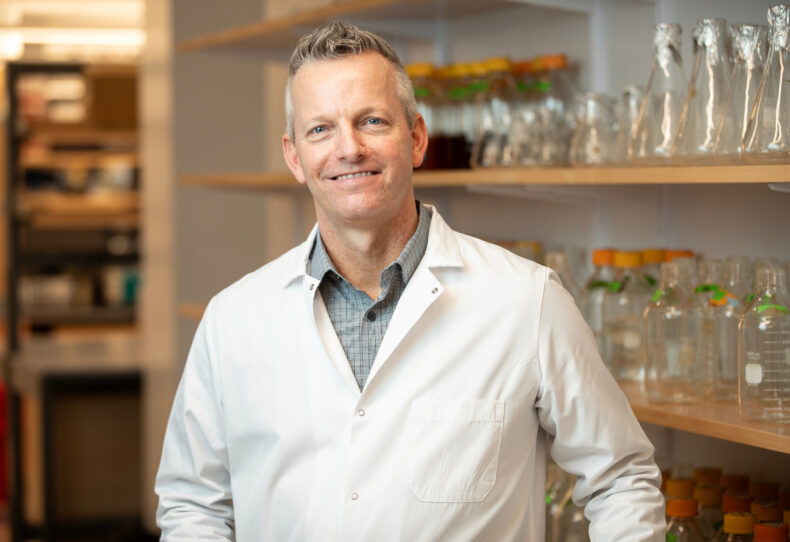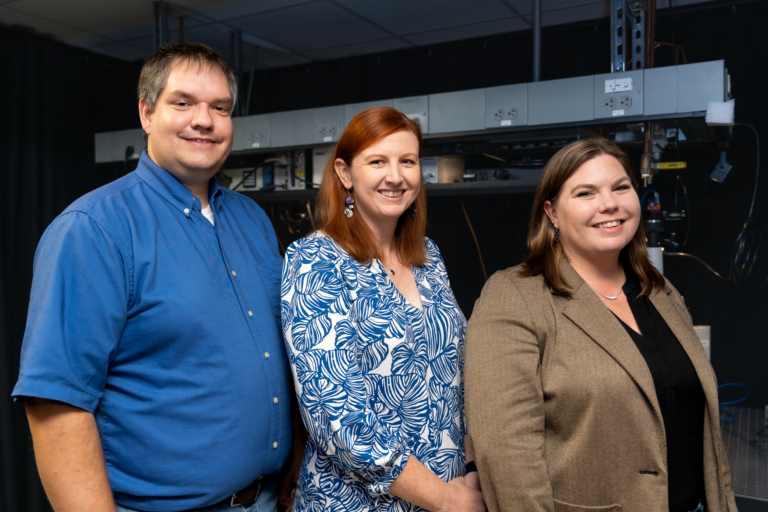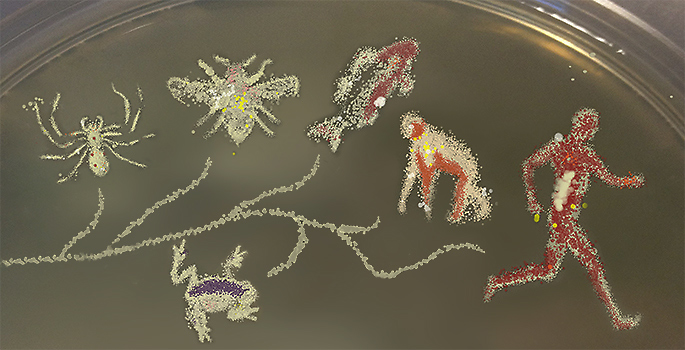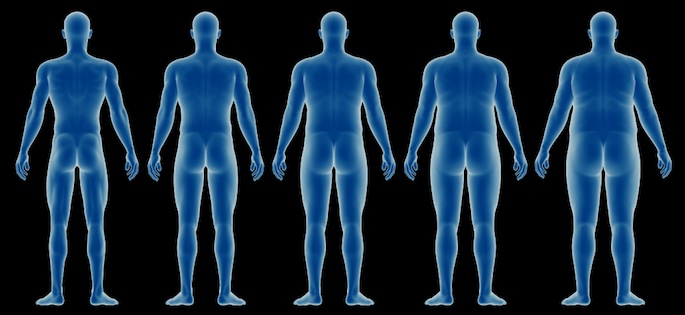Microbiology
-

Eric Skaar: Exploring the connection between nutrient access and infection
When bacterial pathogens enter our bodies, they’ve got one goal—hunt for food to multiply. And during the process, they make us sick. Eric Skaar, Ernest W. Goodpasture Professor of Pathology and director of the Vanderbilt Institute for Infection, Immunology and Inflammation, is uncovering how pathogens compete with healthy microbes for essential nutrients. Read MoreAug 6, 2025
-

Evolved in the lab, found in nature: Uncovering hidden pH sensing abilities
In a groundbreaking study led by Sarah Worthan, Ph.D., a postdoctoral researcher in the Behringer Lab at Vanderbilt University, scientists have successfully evolved microbial cultures that possess the ability to sense pH changes, enabling rapid responses to environmental fluctuations. Read MoreOct 1, 2024
-

Vanderbilt University School of Medicine Basic Sciences adds Carterra’s LSAXT instrument to speed drug and vaccine research and advance patient care
Carterra Inc. and the Vanderbilt University School of Medicine Basic Sciences announced the addition of the Carterra LSAXT label-free interaction analysis platform to the Center for Structural Biology. Vanderbilt and Vanderbilt University Medical Center researchers will be able to discover and characterize large molecules including antibodies. Read MoreSep 26, 2024
-

The pronoun ‘I’ is becoming obsolete
Recent microbiological research has shown that plants and animals, including humans, are not autonomous individuals but are holobionts: biomolecular networks that consist of visible hosts plus millions of invisible microbes. Read MoreAug 19, 2015
-

Skaar elected to American Academy of Microbiology
Eric Skaar, Ph.D., MPH Eric Skaar, Ph.D., MPH, the Ernest W. Goodpasture Professor of Pathology, has been elected to fellowship in the American Academy of Microbiology. Skaar is one of seven current Vanderbilt faculty members who are AAM fellows. The 2,400-member academy is an… Read MoreMar 19, 2015
-

The Crucible of Science
The strength of Vanderbilt biochemistry, especially in the area of metabolism and diabetes, has a lot to do with a brilliant husband-and-wife research team escaping the rise of Nazism in the early 1920s. Read MoreJul 5, 2013
-

Vanderbilt research finds immune cells fan flames of obesity-related inflammation
Researchers at Vanderbilt University have discovered that an unusual set of immune cells, called invariant natural killer T cells, can exacerbate obesity-related inflammation. Read MoreApr 10, 2012
-

Diversity key in antibody repertoire
Antibodies to the 2009 H1N1 influenza strain reveal new insights into how antibody diversity forms and functions, with possible implications for designing flu vaccines. Read MoreOct 7, 2011
-

Starvation diet kills staph bacteria
The antibiotics of the future could take a page from the immune system’s playbook – and “starve” bacteria of the nutrients they need. Read MoreAug 26, 2011